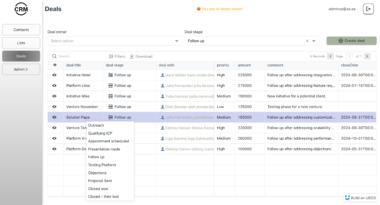systemd-coredump MCP Server
A Model Context Protocol (MCP) server for interacting with systemd-coredump functionality. This enables MCP-capable applications to access, manage, and analyze system core dumps.
Features
- List all available coredumps in the system
- Get detailed information about specific coredumps
- Extract coredump files to a specified location
- Remove coredumps from the system
Prerequisites
- Node.js 18+ and npm
- systemd-coredump must be installed and configured on the system
coredumpctlcommand-line utility must be available
Installation
From npm (recommended)
Global Installation
npm install -g @taskjp/server-systemd-coredump
Local Installation
npm install @taskjp/server-systemd-coredump
From Source
- Clone the repository or download the source code
- Install dependencies:
cd systemd-coredump-server
npm install
- Build the server:
npm run build
Configuration
Add the server to your MCP settings configuration file:
If installed from npm globally:
"systemd-coredump": {
"command": "systemd-coredump-server",
"args": [],
"disabled": false,
"autoApprove": []
}
If installed from npm locally:
"systemd-coredump": {
"command": "node",
"args": ["node_modules/@taskjp/server-systemd-coredump/build/index.js"],
"disabled": false,
"autoApprove": []
}
If installed from source:
"systemd-coredump": {
"command": "node",
"args": ["/path/to/systemd-coredump-server/build/index.js"],
"disabled": false,
"autoApprove": []
}
Usage
Available Tools
The server provides the following tools:
list_coredumps: List all available coredumps in the system
{ "name": "list_coredumps" }get_coredump_info: Get detailed information about a specific coredump
{ "name": "get_coredump_info", "arguments": { "id": "2023-04-20 12:34:56-12345" } }extract_coredump: Extract a coredump to a file
{ "name": "extract_coredump", "arguments": { "id": "2023-04-20 12:34:56-12345", "outputPath": "/path/to/output/core.dump" } }remove_coredump: Remove a coredump from the system
{ "name": "remove_coredump", "arguments": { "id": "2023-04-20 12:34:56-12345" } }get_coredump_config: Get the current core dump configuration of the system
{ "name": "get_coredump_config" }This tool returns information about the current core dump configuration, including:
- Whether core dumps are enabled
- The current core pattern
- The core size limit
- Whether systemd is handling the core dumps
set_coredump_enabled: Enable or disable core dump generation
{ "name": "set_coredump_enabled", "arguments": { "enabled": true } }Setting
enabledtotruewill enable core dumps, whilefalsewill disable them. Note: This changes the ulimit settings for the current shell. For permanent system-wide changes, root privileges and modification of system configuration files would be required.get_stacktrace: Get stack trace from a coredump using GDB
{ "name": "get_stacktrace", "arguments": { "id": "2023-04-20 12:34:56-12345" } }This tool uses GDB to extract a formatted stack trace from the coredump. Note: Requires the GDB debugger to be installed on the system.
Available Resources
The server exposes two types of resources:
Coredump Information
- URI format:
coredump:///<id> - Returns JSON with detailed coredump information
- URI format:
Stack Traces
- URI format:
stacktrace:///<id> - Returns a formatted stack trace from the coredump
- URI format:
Where <id> is the unique identifier for a coredump in the format: <timestamp>-<pid>.
For example:
coredump:///2023-04-20 12:34:56-12345
stacktrace:///2023-04-20 12:34:56-12345
Note on Permissions
Some operations may require elevated privileges, especially when extracting or removing coredumps. Ensure the user running the MCP server has appropriate permissions to access system coredumps.
License
MIT
systemd-coredump MCP Server
Project Details
- signal-slot/mcp-systemd-coredump
- @taskjp/server-systemd-coredump
- Last Updated: 3/8/2025
Recomended MCP Servers


A Model Context Protocol (MCP) server that automates generating LinkedIn post drafts from YouTube videos. This server provides...



Model Context Protocol (MCP) server for Kubernetes and OpenShift


Swagger to MCP server


A GitHub MCP Server

An MCP server providing advanced options analysis through Yahoo Finance, supporting Greeks calculations, strategy evaluation (CCS/PCS/CSP/CC), and risk...

Query MCP enables end-to-end management of Supabase via chat interface: read & write query executions, management API support,...
 From vibe coding to vibe deployment. UBOS MCP turns ideas into infra with one message.
From vibe coding to vibe deployment. UBOS MCP turns ideas into infra with one message.








